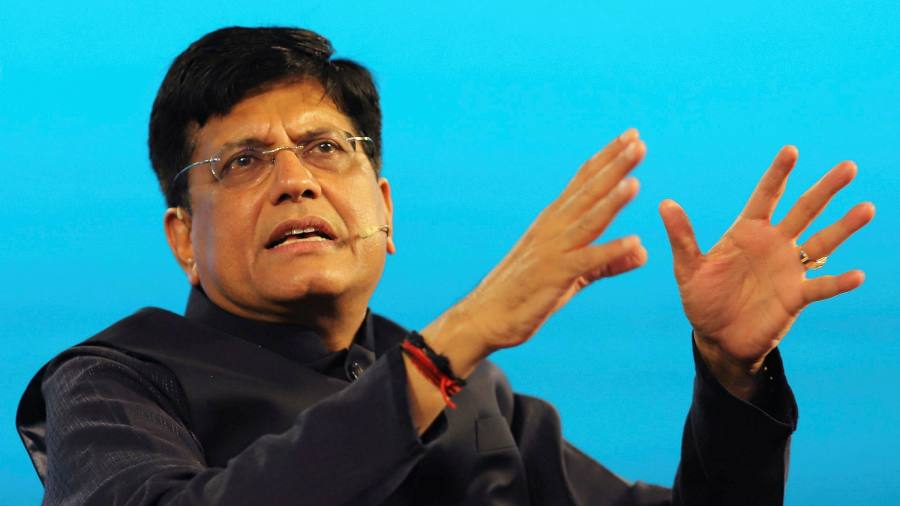India has criticised developed countries for overcharging for vaccines and overfishing the high seas in a dramatic intervention that could torpedo agreements in those areas at the World Trade Organization’s ministerial meeting.
Piyush Goyal, India’s commerce minister, took the unusual step of publishing his remarks to fellow ministers in closed-door sessions in Geneva on Tuesday.
Delhi has long argued for an intellectual property waiver that would allow poorer countries to make cheap copies of western vaccines without paying royalties. But it worked on a compromise with the EU and US that would allow governments to issue compulsory licences and compensate patent holders.
But Goyal tore into that agreement, telling developing countries they should “not get conned” by a “suboptimal” deal.
“Where a vaccine in India gets produced for $1.50, many parts of the world are paying $38-$40 plus. Some of you have received donations, valuing the vaccine at $38 or $40 and making it out to be such a big favour to you.
“So, my own sense is that what we are getting is completely half-baked and it will not allow us to make any vaccines. They have no intentions of allowing therapeutic and diagnostics and . . . they try to say that we are the cause for its collapse.”
Charities have also criticised the compromise as insufficient. Developed countries say the issue is not the availability of vaccines, but the reluctance of people to take them.
“This is simply industrial policy for India, allowing their generic pharmaceutical companies to make money,” said one diplomat in Geneva, who declined to be named.
At a separate meeting discussing how to reduce overfishing by cutting subsidies, Goyal said developed countries were responsible for the problem.
“Advanced fishing nations own the responsibility of the damage caused to the global fisheries wealth especially in the high seas which are also the common heritage of humankind,” he said.
“The concern of the small number of fishermen [in some countries] prevails over the livelihood of 9mn fishermen in India. This is completely unacceptable! And that is the reason India is opposed to the current text,” he added. “Fish is an inseparable part of Indian mythology, religion and culture.”
He said developing countries should be “cautious while we mortgage away our future and the future potential of our poor people to grow”.
Goyal demanded a 25-year exemption for India and other developing countries from controls, and a permanent exemption for “artisanal fishermen” fishing up to 200 nautical miles from shore.
Despite his claims, almost all the 164 WTO members are ready to sign up to the text after 21 years of talks, officials say. Fishing subsidies are estimated to be $35bn worldwide, of which $20bn directly contributes to overfishing. The UN says the proportion of stocks fished at biologically unsustainable levels increased from 10 per cent in 1974 to 34.2 per cent in 2017.
Isabel Jarrett, a fisheries expert at the Pew Charitable Trusts, said a deal that would be implemented swiftly was urgent. “Fish stocks do not have another 25 years,” she said.
Along with South Africa and Indonesia, India is also opposing the extension of a moratorium on customs duties on digital products. It ends when the meeting does on Wednesday and without extension would allow governments to put levies on film downloads, software updates and the like.
Some diplomats believe India is playing tough to get concessions in other areas, including agricultural subsidies. The WTO has tried to keep talks separate but a spokesman said last night that could change. “A call may be made to tell everyone to put their cards on the table. They’re not at that stage. I’m not suggesting that they will do it,” Daniel Pruzin said.
“But as the clock ticks down, as the seconds go by, you know, some creative solutions and creative methods may be needed in order to help achieve some breakthroughs.”
Credit: Source link














